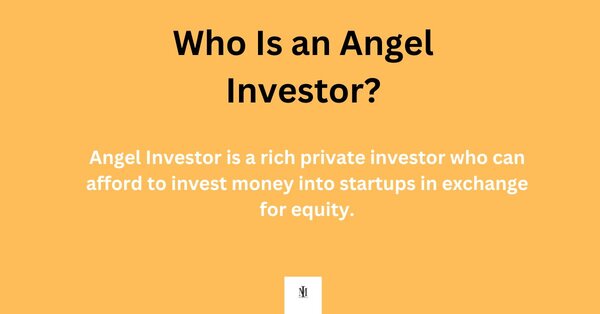Angel Investor is a rich private investor who can afford to pump money into small businesses in exchange for equity. The wealthy investor offers initial seed money for startup businesses for some form of ownership equity in the business.
In every country, angel investors are helpful to entrepreneurs who find it difficult to access other sources of financing such as bank loans. Since they are also aware of the risk involved in financing a startup or a growing business that can either succeed or fail, they are known to invest no more than ten percent of their net worth in startup projects.
According to data from the Center for Venture Research, there were 363,460 active angel investors in the United States in 2021, who have financed over 69,000 companies.
In Europe, the United Kingdom has the highest number of active angel investors (10,000) in 2022, followed by Germany (7,500) and then France (5,500).
Understanding how they work
They are known as “angel investors” because they are often regarded as a financial savior to startups. Since it is hard for entrepreneurs to access resources from banks and formal venture capital firms during takeoff stage, these “Angels” step into the scene to help out.
Historically, the usage of “angel” emanated in Broadway theater many years ago, in the description of rich people who made available lots of money for theatrical productions that would have been shut down. But it was in 1978 that it was first used in the context of investing in firms by a former professor at the University of New Hampshire known as William Wetzel.
Angel Investor vs Venture Capital Firm
An angel investor is different from a venture capital firm. While the latter makes use of an investment fund to finance a business, the former simply use their own money, as they are usually wealthy individuals who are seeking a higher rate of return than what is being presented in more traditional investment platforms.
A typical angel investor is not in the lending business. What they do is simply look around for promising startups with great ideas and invest their resources in the company to enable them to grow, with the expectation of a share only if and when that company becomes successful.
Do They Get Paid?
There is no specific monthly salary arrangement between a startup and the angel investors. Rather, as they become a part of the company’s ownership, they are entitled to get an agreed share of any profit the business might earn in the future.
While it is a risky venture, several angel investors still make a lot of money, although this is usually influenced by various factors such as the timing of the investment, and the type of company they invest in.
Are they the same as anchor investors?
No!
Anchor investors are institutional buyers who buy large shares in a company at a fixed price before its initial public offering (IPO) to generate a considerable amount of interest that attracts other investors to the IPO.
The anchor investor, which plays at an entirely different sophisticated cadre in the business world as an institution, is better appreciated in the context of helping companies launch their IPOs effectively.
The angel investor is an individual who finances a growing business, either via a one-time injection of seed funds or a continuing infusion of money to boost the company’s success.
Also, unlike the anchor investor, there are angel investors who don’t operate on a professional basis, but only support a project based on family ties with the entrepreneur.
Can Anyone Be An Angel Investor?
Anyone can be an investor as far as they have the financial strength and a clear understanding of their business environment. You should be able to have a good measure of understanding of the risks involved and have the necessary resources to fund the ventures.
What does it take to be one?
To be an accredited angel investor in the United States, you have to satisfy the requirements of the U.S. Securities and Exchange Commission to be stamped as one. You are expected to have at least $1 million in net worth and earn at least $200,000 yearly.
How Do Angel Investors Get Money?
Many angel investors are retired business owners who already made a lot of money from their business activities and projects.
Several angel investors look beyond monetary benefits when they invest in startups. Some are simply interested in an opportunity to mentor the next generation of entrepreneurs by providing feedback, advice, and contacts.
Summary
Angel investors are crucial in developing the macroeconomic sector of a country. They help impact the economy with their resources by supporting startups that wouldn’t have floated without funds. They help with liquidity.
If you are an entrepreneur desiring to meet angel investors, you should attend a lot of investor conferences and symposium. Also, be on the lookout for meetings organized by angel investors where startups are allowed to pitch their projects directly.


